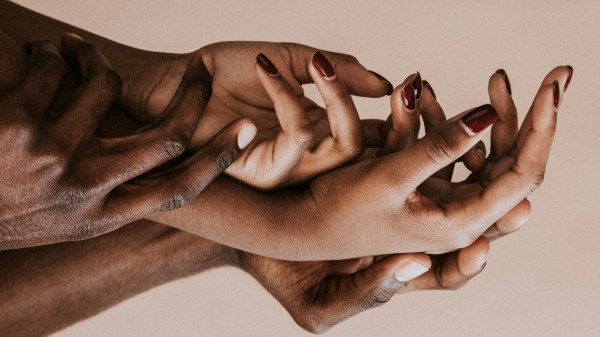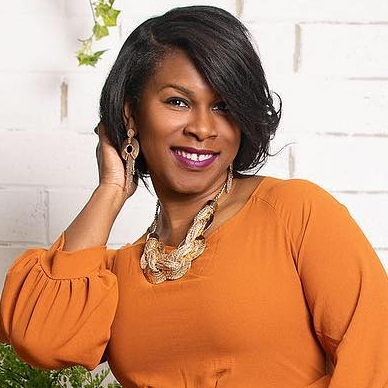Saints, let’s talk about sex
Drawing connections between spiritual worship and sexual awareness, Rev. Dr. Alisha Jones urges us to explore the intersection. “Notes on […] The post Saints, let’s talk about sex appeared first on TheGrio.

Drawing connections between spiritual worship and sexual awareness, Rev. Dr. Alisha Jones urges us to explore the intersection.
“Notes on faith” is theGrio’s inspirational, interdenominational series featuring Black thought leaders across faiths.
“What if we considered being a musician a type of sexual orientation?”
This was the question I posed during a recent episode of “Beyond the Gatekeepers” livestream with Bishops Yvette Flunder and Vanessa Brown, the open and affirming platform of two same-gender-loving (SGL) clergy from The Fellowship of Affirming Churches. Despite the fact that church folks can be very hesitant to discuss these topics, the viewing saints and friends went marching into the stream and concurrent chat, eager to explore the connection between how they worship and their sexual, sensual, and culinary appetites. For many musicians, especially, making and experiencing music are sensual and sexual activities in which their entire body and soul are engaged, regardless of whether in the sanctuary or in the club.
Our discussion was inspired by training I facilitated based on new gastro-musicology research to be released in the Yale Journal of Music & Religion later this year. In Afro-Protestant worship, participants are typically encouraged or expected to fully engage in their worship by openly singing or dancing. As their bodily participation increases, so too, does the circulation of blood and happy hormones throughout the body. Some worshippers learn to harness that blood flow musically or through preaching — methods understood to be worshipful when in spiritual communion. Yet, some preachers have admitted to me they feel they have not preached a good sermon until they have literally climaxed while delivering it. Similarly, there have been recording artists who have confessed they become sexually or sensually aroused — or fully satisfied — depending on how intense their musical emissions were.
The principles explored in my research illuminate the divine purpose behind our physical and emotional connections, teaching us that the expression of love — both physical and spiritual — serves as a powerful medium of worship. In my marriage, this understanding has deepened my bond with my husband, allowing us to experience the sacredness of our union in its fullness. Free-flowing, creative and empowering love has always been what I desire most; now, it is the intention we have set together. I am grateful for how it plays out physically, spiritually, and emotionally. Our intimacy in the bedroom is enhanced by more nuanced lovemaking throughout our everyday affairs of walking around town, discussions we share about intellectual musings — and my favorite, cooking and music-making.
Together, we’ve learned to see our acts of love and physical intimacy not merely as expressions of affection but as extensions of our worship and gratitude toward the Creator who brought us together. This perspective has encouraged us to approach our relationship with a sense of holiness and reverence, recognizing the presence of the Divine in our midst.
As I brought this perspective and more into our discourse on “Beyond the Gatekeepers,” perhaps the most controversial moment in the conversation was when I suggested that we also need to explore new conversation partners with different identities. Specifically, we should consider talking to nutritionists, sex surrogates, sex and physical therapists, physicians and sex workers because they can equip us, as saints, with information on how to handle our myriad cravings, tastes, and hard-wirings, allowing us to be present for each other without fear. Further, same-gender-loving (SGL), trans and queer people should be conversing with non-SGL people and vice versa.
Some might presume that I was simply suggesting “straight” men talk to lesbian women or gay men talk to “straight” women about how to excel at sex. And yes, we should be discussing sexual pleasure, especially when we are transparent about the fact that people of all identifications are increasingly exploring same-gender intimacy and subsequently finding higher success rates in achieving orgasm. What I know as a non-SGL individual reflecting on the confluence of sensuality, sexuality, and worship within the sacred context of marriage, I can testify that being open to these insights has profoundly enriched my life as a wife and my relationship with my husband.
I am benefitting from exploring new conversation partners that are securing my sex education, vocal musicianship, and reproductive health. I’ve learned, for example, that deep breathing and twerking are excellent for strengthening my pelvic floor — an equally essential part of my anatomy in supporting healthy singing, sex, and reproduction. Another piece of advice my research has revealed is that singing high or enjoying the release of making high-pitched noises during sex both engages the pelvic floor and intensifies orgasms. My husband says he will never look at or listen to the soprano section at church the same again!
As we closed the discussion, Bishop Yvette Flunder left us with both a call to action and a benediction that served as a pastoral affirmation of my findings. She advised us to get to know our bodies, our likes and dislikes, and what pleases us so that we will not burden our partner(s) with finding them for us. And as you make those discoveries, be very clear that all that you have — your entire person, body and soul — is good. Amen? Amen!
For sure, the good news is that in our spiritual journey, embracing the divine design of sensuality and sexuality requires courage to ignore the opinions of others, and instead trust in God or our innate sense of what the Divine would want for us; to recognize the creator of our bodies and what pleases them. What the lively conversation on “Beyond the Gatekeepers” revealed is the kind of sexual healing that can be achieved when we exchange information in safe, spiritually rich spaces: We are challenged to view our worship, sexual health, and pleasure as essential and intersectional parts of communing with God. This exposure to diverse conversation partners deepens both our receptivity and what we have to offer in our relationships, inviting holiness, knowledge, and reverence into our intimacy.
Let us boldly accept our entire selves, recognizing our sexual pleasure as a sacred gift from God and a welcome form of worship. And let us move forward with the confidence that in understanding our sensual selves, we draw closer to God.

Rev. Dr. Alisha Lola Jones is a faith leader helping people to find their groove in a fast-paced world, as a consultant for various arts and faith organizations and professor of music in contemporary societies at the University of Cambridge in Cambridge, England. She is an award-winning author of Flaming? The Peculiar Theopolitics of Fire and Desire in Black Male Gospel Performance (Oxford University Press). For more information, please visit DrAlisha.com.
Never miss a beat: Get our daily stories straight to your inbox with theGrio’s newsletter.
The post Saints, let’s talk about sex appeared first on TheGrio.












